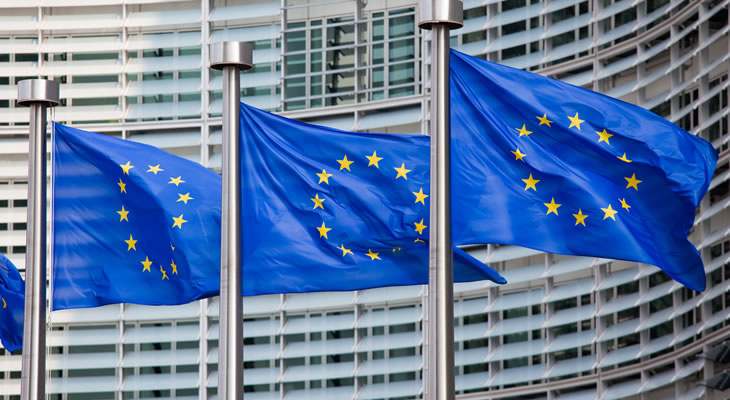The Euro to Pound exchange rate dropped sharply from its weekly highs on Wednesday as the day’s UK data came as a pleasant surprise for Sterling investors. EUR GBP continued to trend in the region of 0.85 after revering from Monday’s low of 0.84.
While this week’s Eurozone data has been solid, demand for the Pound shot up on Wednesday when it was confirmed that Britain’s economic activity had not been as poor in March as feared.
Following unexpectedly poor UK manufacturing and construction data from March published earlier in the week, Sterling began to slip as analysts and investors speculated that Britain’s growth was beginning to slow due to consumers reining in spending.
However, Wednesday’s UK services PMI beat expectations comfortably, improving from 53.3 to 55 despite being projected to only gain to 53.5. This result was very reassuring to concerned investors.
Services account for a large chunk of Britain’s Gross Domestic Product (GDP) so the stronger than expected report had a significant effect on investors’ perception of the strength of Britain’s economy.
As a result of the report, the Euro to Pound exchange rate to fall from its highs, despite Eurozone data generally being solid this week.
Eurozone manufacturing and unemployment stats saw solid improvements according to Monday’s reports and Tuesday’s Eurozone retail sales figures came in well above expectations.
While Wednesday’s Eurozone services and composite PMIs for the Eurozone came in below expectations, they still topped off the biggest quarter of growth for the Eurozone private sector since the beginning of the financial crisis.
Despite EUR GBP’s drops on Wednesday, analysts and economists believe the Eurozone economic outlook is optimistic – possibly moreso than Britain’s.
Chris Williamson, chief economist at Markit (the group that published the PMIs) stated that the Eurozone’s PMIs indicate an impressive rate of economic growth in the bloc.
On the other hand, Britain’s services sector report does include some concerning downsides, such as a slower pace of hiring which has left groups struggling to remain productive. Markit stated;
‘A combination of rising workloads and softer employment growth contributed to a renewed accumulation of backlogs across the service economy. Some firms noted that squeezed margins and rising wage bills had led to the non- replacement of voluntary leavers.’
Despite this and a slightly slower Q1 2017 than Q4 2016, analysts believe the results indicate continued growth in most major sectors.
As a result of this week’s data, investors are more confident that the Eurozone and UK will have solid economic activity in the mid to long-term.
Instead, political uncertainties and shifts will have a strong influence on long-term EUR GBP movement now.
France will hold its 2017 general elections later in April with a second round following in early-May. A shock win for anti-EU candidate Marine Le Pen could undermine the Euro considerably, as investors expect she will move to take France out of the Eurozone.
May and June will see early Brexit negotiations begin between Britain and the EU, which could influence the long-term Pound outlook.
At the time of writing this article, the Euro to Pound exchange rate trended in the region of 0.85. The Pound to Euro exchange rate trended in the region of 1.16.


Comments are closed.